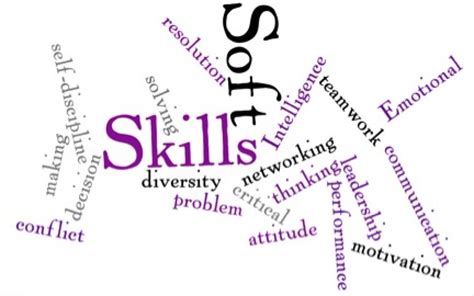Skill Sets: What Are They And Why They Matter

Having a unique set of skills and competencies is crucial for success in any field. Skill sets refer to a combination of skills, abilities, and knowledge that are required to perform a particular task or job effectively. In today’s fast-paced and competitive world, possessing the right skill sets can make all the difference in your career. In this blog post, we will explore what skill sets are, why they matter, and how you can develop them to achieve your goals.
What Are Skill Sets?
Skill sets are a combination of skills, abilities, and knowledge that are required to perform a particular task or job effectively. They can be technical, such as programming, data analysis, or graphic design, or soft, such as communication, leadership, or problem-solving. Some skill sets are specific to certain industries or job roles, while others are transferable and can be applied to various fields.
Types of Skill Sets
There are two main types of skill sets:
- Hard Skills: These are technical skills that are learned through training, education, or experience. Examples include coding, web development, accounting, and project management.
- Soft Skills: These are interpersonal skills that are related to communication, teamwork, leadership, and problem-solving. Examples include emotional intelligence, adaptability, creativity, and critical thinking.
Why Do Skill Sets Matter?
Skill sets are essential for personal and professional growth. Here are some reasons why they matter:
- Career Advancement: Possessing the right skill sets can open doors to new job opportunities, promotions, and salary increases.
- Increased Productivity: Having the necessary skills and knowledge to perform a task efficiently can save time and resources, leading to increased productivity.
- Adaptability: In today’s rapidly changing job market, having a diverse set of skills can make you more adaptable to new roles and industries.
- Competitive Edge: A unique combination of skills and competencies can give you a competitive edge over other candidates in the job market.
How to Develop Your Skill Sets
Developing your skill sets is an ongoing process that requires dedication, effort, and continuous learning. Here are some tips on how to do it:
1. Identify Your Strengths and Weaknesses
Start by identifying your strengths and weaknesses. This will help you understand where you need to improve and where you can leverage your existing skills.
2. Set Realistic Goals
Set realistic goals for yourself based on your strengths and weaknesses. This will help you stay focused and motivated.
3. Take Courses and Training Programs
Take courses and training programs to develop your skills. There are many online courses and certifications available that can help you learn new skills or improve existing ones.
4. Attend Workshops and Conferences
Attend workshops and conferences to network with professionals in your field and learn about new trends and technologies.
5. Seek Feedback
Seek feedback from your peers and supervisors to understand your strengths and areas for improvement. This will help you identify blind spots and develop a growth mindset.
6. Practice, Practice, Practice
Practice your skills regularly to improve them. This can be done through personal projects, volunteering, or taking on new responsibilities at work.
Conclusion
Skill sets are an important aspect of personal and professional development. They can open doors to new opportunities, increase productivity, and give you a competitive edge in the job market. Developing your skill sets is an ongoing process that requires dedication, effort, and continuous learning. By identifying your strengths and weaknesses, setting realistic goals, taking courses and training programs, attending workshops and conferences, seeking feedback, and practicing regularly, you can develop a unique set of skills that will help you achieve your goals.
Frequently Asked Questions
What are some examples of hard skills?
Some examples of hard skills include programming, data analysis, graphic design, accounting, and project management.
What are some examples of soft skills?
Some examples of soft skills include communication, teamwork, leadership, emotional intelligence, adaptability, creativity, and critical thinking.
Why are soft skills important?
Soft skills are important because they are essential for effective communication, teamwork, leadership, and problem-solving. They can also improve workplace culture and productivity.
How can I identify my strengths and weaknesses?
You can identify your strengths and weaknesses by reflecting on your experiences, seeking feedback from others, and taking personality or skill assessments.
How can I stay motivated to develop my skill sets?
You can stay motivated by setting realistic goals, tracking your progress, celebrating your successes, seeking support from others, and reminding yourself of your why.
